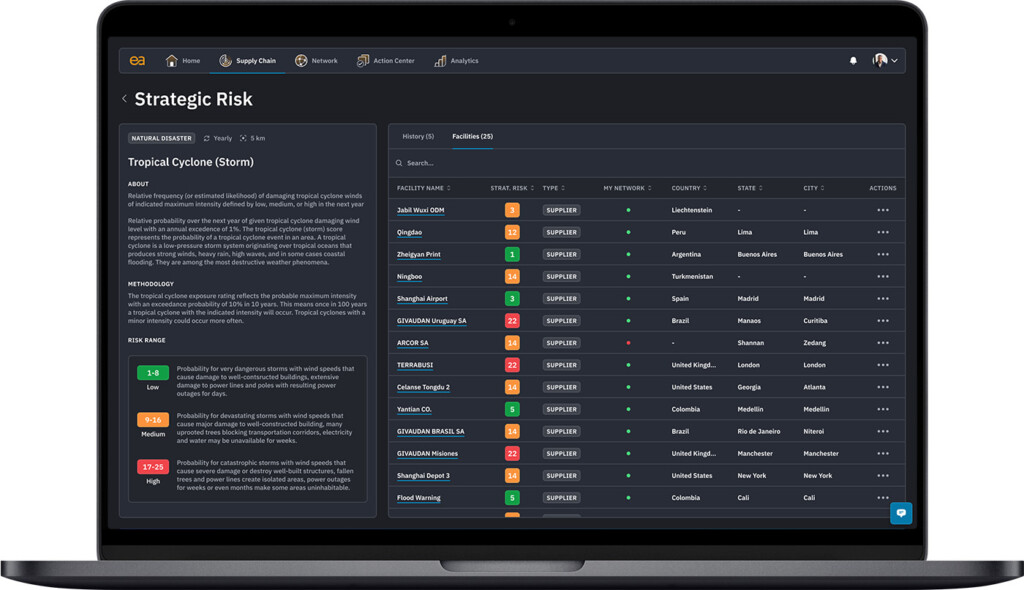Supplier risk management has emerged as a strategic priority for many businesses. A recent KPMG survey highlighted that most companies acknowledge the importance of managing supplier risks. This begins with a routine practice known as supplier risk assessment. This process aims to understand the risks associated with suppliers and their management strategies. The objective is not to eliminate all risks, but rather to align supplier risks with the company’s risk appetite.
Supplier risk management for contracts
Before entering into a contract with a supplier, businesses must deeply understand the specific risks of a supplier. These risks include financial risk, cyber risk, and factors relating to sustainability diversity. Investigating risks linked to sub-tier suppliers is also a critical part of the risk assessment process.
Ongoing supplier risk management
After suppliers are onboarded, continuous monitoring of their risk becomes crucial. This can be accomplished manually, or companies can leverage risk-management software and artificial intelligence for more efficient and accurate monitoring. The use of technology is imperative when mapping further than Tier 1 level in the supply network.
LEARN MORE ABOUT HOW SUPPLIER RISK MANAGEMENT WORKS: DOWNLOAD REPORT
Supplier scorecards for risk management
The supplier scorecard plays a vital role in supplier risk management. It assesses various risk factors such as on-time delivery performance, quality performance, business volume, supplier relationship, and the maturity of sustainability governance. Additionally, the criticality of the materials supplied is also taken into account.
Proactive supplier risk management
Shifting from reactive to proactive risk management involves proactive supplier risk assessment. This technique, when combined with reactive risk management, aids in identifying and analyzing potential risks across all suppliers in the network before they occur. Scenario planning comes into play here, finding a balance between proactive and reactive risk measures while accounting for cost implications.
Everstream Explore for holistic management
Everstream Explore offers a comprehensive scorecard methodology for supplier risk assessment. It covers a wide spectrum of risks, both external and internal, including natural disasters, operational risk, political violence, sustainability, and more. Their survey portal solution enables supply chain managers to investigate internal risks, converting them into actionable risk key performance indicators (KPIs).

Figure 1: The Everstream Explore platform offers a comprehensive scorecard methodology for supplier risk management.
In conclusion, supplier risk management is an essential practice that ensures the resilience of a company’s supply chain. It entails assessing and managing risks associated with suppliers throughout their lifecycle, from selection to onboarding and ongoing monitoring. By proactively identifying and analyzing risks, companies can make well-informed decisions to protect their supply chains and choose suppliers with efficient risk management practices. As businesses continue to face unprecedented challenges, supplier risk management becomes even more critical in mitigating potential disruptions and maintaining a competitive advantage.
LEARN MORE ABOUT HOW SUPPLIER RISK MANAGEMENT WORKS: DOWNLOAD REPORT